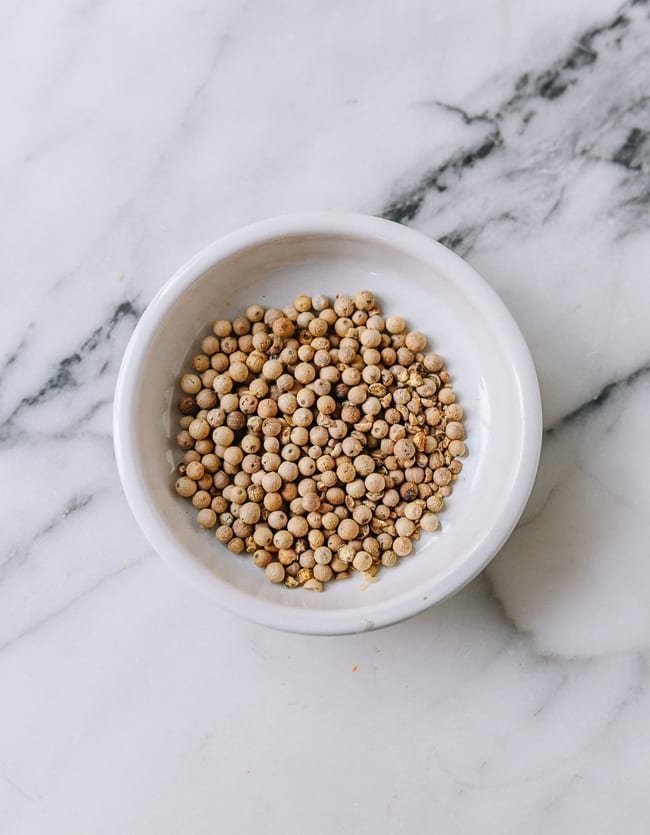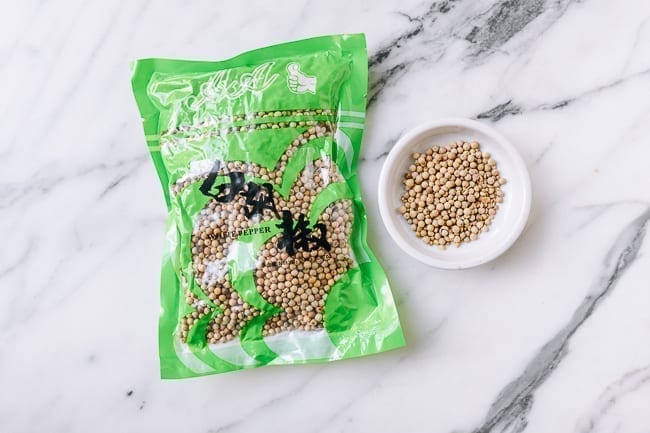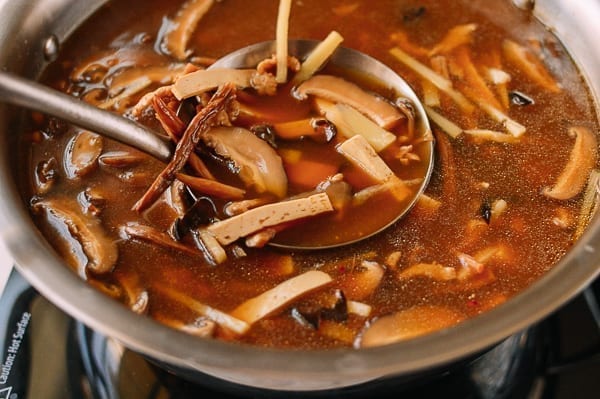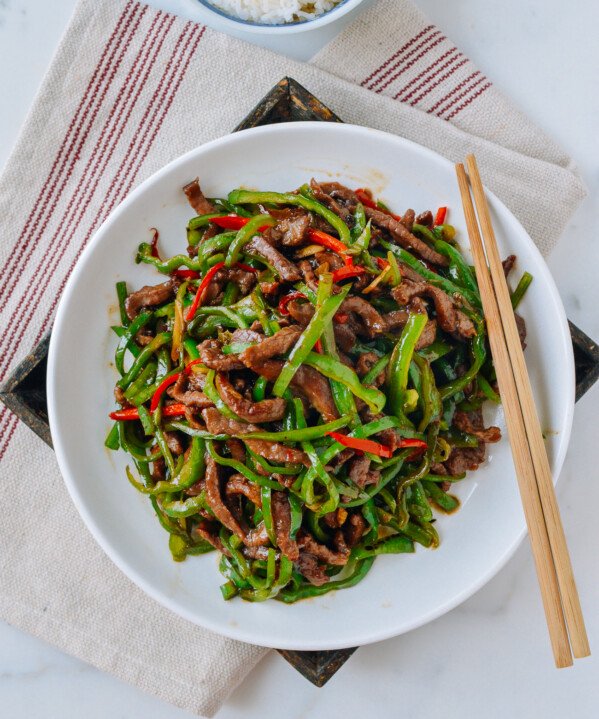You’ll see white pepper in the ingredients lists of many of our Chinese recipes. In fact, if pepper is in a Chinese or other Asian recipe, it’s almost always white pepper rather than black. But what is white pepper exactly, how is it different from black pepper, and how is it used?
As such a ubiquitous ingredient here at The Woks of Life, we figured we ought to explain.
We’ll cover everything in this short post.
What is White Pepper? How Is It Different from Black Pepper?
It may surprise you to know that white peppercorns, black peppercorns, and even green peppercorns all come from the same plant. That plant is piper nigrum, or the pepper plant, a vine that produces berries. Those berries, processed in varying ways, are what we know as peppercorns.
Black pepper, the most common spice derived from this plant, is produced by taking the green, unripe berries of the plant, cooking them in hot water, and drying them. After drying, the berry skin around the seed blackens and shrinks, and voila! The resulting dried product is a black peppercorn.
White pepper, on the other hand, is processed when the berries of the pepper plant are ripe. The outer skin of the berry is removed, leaving only the seed inside. The seeds are then dried to make white peppercorns.
So really, the difference between white and black pepper lies in when the berries from the piper nigrum plant are harvested and processed (ripe or unripe), and whether or not the spice consists of the whole berry or just the seed.
(For all you lovable nerds out there wondering about green peppercorns, I’ve got you. Like black peppercorns, they’re made from the unripe berries (picked when green), and processed to retain their green color, whether via freeze drying or other chemical processes.)
How Is It Used?
In Western cooking, white pepper may be used for aesthetic reasons in white sauces or dishes. If, for instance, you were in a French cooking school whipping up a bechamel (a sauce made from a roux and milk), your instructor might tell you to use white pepper instead of black to avoid little unsightly black flecks in your sauce. Ah, the French.
In Asian cooking, and Chinese cooking especially, it is used much more commonly than black pepper. Again, it is always the preferred choice for our Chinese dishes, unless otherwise specified.
Translating to bái hújiāo (白胡椒) in Chinese, white pepper is used in soups, marinades, sauces, stir-fries, and more. You may be surprised to know, for instance, that it’s white pepper, and not chili that lends that slow burning heat to your favorite takeout hot and sour soup.
What Does it Taste Like?
While freshly ground black pepper has a certain floral, pungent aroma, white pepper has an earthy, more uniformly hot/spicy character that gets right to the back of the throat.
Buying and Storing
It may be a little harder to find than regular black pepper, but any well-stocked grocery store or Asian store will have it. You can also buy it on Amazon in a pinch!
You can buy it as whole peppercorns and drop them into your favorite grinder, or you can buy it as a fine powder.
We generally use it freshly ground in stir-fries. We use the powder in marinades and soups (or any application where you wouldn’t want to bite down on coarsely ground pepper). Note that freshly ground white pepper will have a stronger flavor than the powder.
Store this ingredient in a dark, dry place in a sealed container. Whole peppercorns will last longer than powder, so avoid buying the pepper powder in large quantities.
Substitutions for White Pepper
If you don’t have white pepper, you can always substitute some black pepper, but we really suggest investing in a bottle of this stuff, as it will make your Chinese dishes taste all the more authentic.
Our Favorite Recipes Using This Ingredient
…too many to name! So many of our Chinese recipes include this ingredient. That said, some recipes where it is indispensable include:
- Hot & Sour Soup
- Salt & Pepper Squid
- Cantonese Salt & Pepper Pork Chops
- Baked White Pepper Chicken Wings
That should be all your questions answered! But if you have further questions, let us know in the comments. We try to answer every single one!






